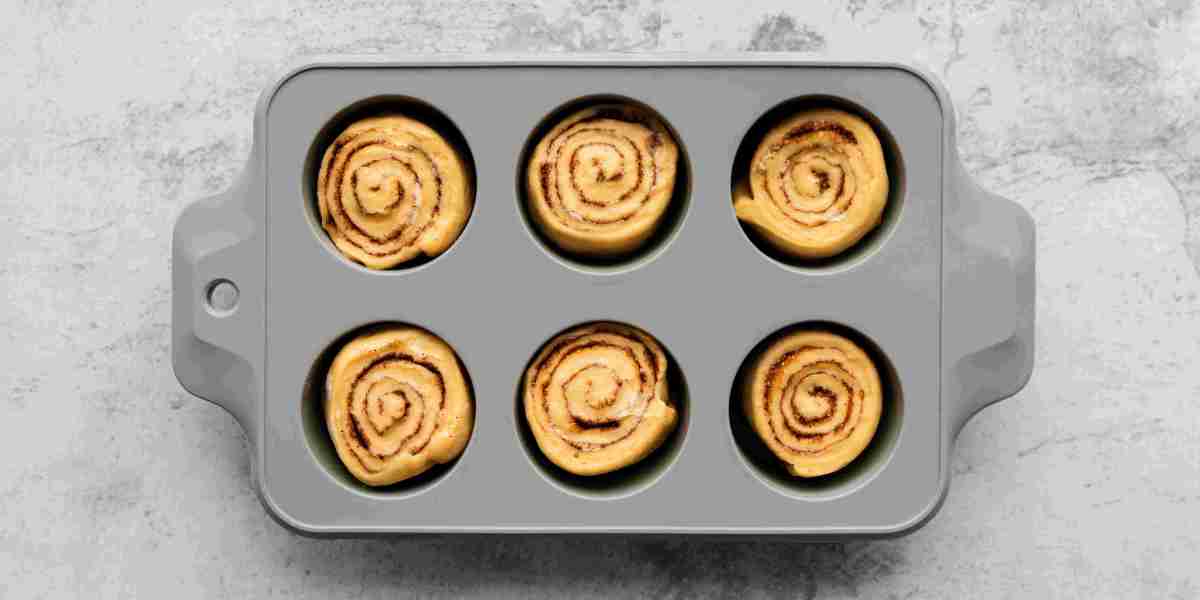Silicone bakeware, including the silicone muffin pan, has gained popularity due to its non-stick surface, flexibility, and durability. However, proper care is essential to maintain its longevity and performance. In this guide, we will cover the best cleaning, storage, and maintenance practices for your silicone muffin pan to keep it in top condition.
Cleaning Your Silicone Muffin Pan
Keeping your silicone muffin pan clean is crucial for hygiene and maintaining its non-stick properties. Here’s how to clean it properly:
1. Wash Before First Use
New silicone bakeware may have residual manufacturing oils. Before using it for the first time, wash it with warm, soapy water and rinse thoroughly.
2. Hand Wash After Each Use
Although many silicone pans are dishwasher safe, hand washing is the best way to extend their lifespan. Use mild dish soap and a soft sponge to remove any residue. Avoid using harsh scrubbers, as they can damage the silicone surface.
3. Remove Stubborn Stains
If grease or baked-on residue remains, try the following methods:
Soak the pan in warm, soapy water for 15–30 minutes.
Use a baking soda paste (mix baking soda with a small amount of water) to scrub away stains gently.
Rinse thoroughly to remove all soap and residue.
4. Dry Completely Before Storing
After washing, allow the pan to air dry or use a clean towel to wipe away moisture. Storing a damp pan can lead to mold and odors.
Preventing Sticking and Damage
Even though a silicone muffin pan is naturally non-stick, proper care ensures it stays that way. Here are some tips to prevent sticking and damage:
1. Use a Light Grease or Cooking Spray
While silicone is non-stick, a light coating of cooking spray or oil can help release baked goods even more easily, especially when baking items with high sugar content.
2. Avoid Sharp Tools
Never use metal utensils to remove muffins or cupcakes from the pan. Instead, use a silicone spatula or your fingers to gently pop them out.
3. Do Not Overheat
Most silicone bakeware is safe up to 450°F (230°C), but always check the manufacturer's recommendations. Avoid placing it directly on an open flame or under a broiler, as excessive heat can cause damage.
4. Support the Pan When Moving
Since silicone is flexible, always place the muffin pan on a sturdy baking sheet before filling and moving it. This prevents spills and ensures even baking.
Proper Storage Tips
Storing your silicone muffin pan correctly will keep it in great shape for years. Follow these tips:
1. Store Flat or Hang
If possible, store the pan flat in a drawer or cabinet. You can also hang it on a hook if it has a hole for hanging.
2. Avoid Heavy Stacking
Do not place heavy objects on top of the pan, as this can cause it to lose its shape over time.
3. Keep Away from Direct Sunlight
Prolonged exposure to direct sunlight can degrade the silicone material. Store your pan in a cool, dry place.
Dealing with Odors
Over time, silicone bakeware may absorb strong odors from certain foods. Here’s how to remove them:
1. Baking Soda Soak
Mix baking soda with warm water and let the pan soak for a few hours or overnight. Rinse thoroughly afterward.
2. Vinegar Rinse
Soak the pan in a solution of equal parts white vinegar and water for 30 minutes, then wash as usual.
3. Oven Treatment
Place the empty pan in an oven at 350°F (175°C) for 10 minutes. This helps remove lingering smells.
Extending the Lifespan of Your Silicone Muffin Pan
To get the most out of your silicone muffin pan, follow these best practices:
Always follow the manufacturer’s temperature guidelines.
Use mild detergents and avoid abrasive cleaning tools.
Store it properly to prevent misshaping.
Avoid cutting baked goods directly in the pan.
Conclusion
With proper care and maintenance, your silicone muffin pan can last for many years while providing excellent baking results. Regular cleaning, careful handling, and proper storage will keep it in the best condition. By following these tips, you can enjoy hassle-free baking with your silicone muffin pan for a long time to come.






